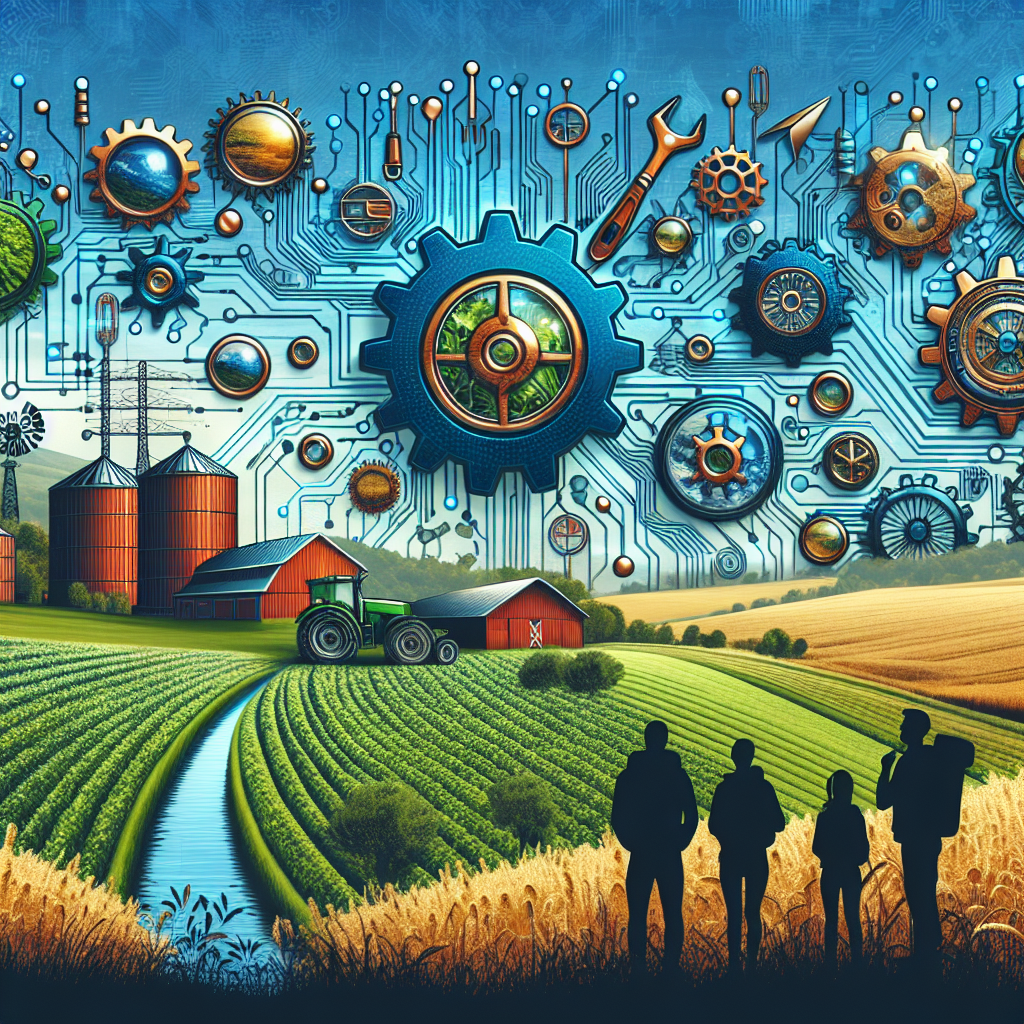Agrotourism is a growing trend in the travel industry, offering visitors the opportunity to experience life on a farm or in a rural setting. From picking fruits and vegetables to participating in traditional farming activities, agrotourism provides a unique and immersive experience for travelers looking to connect with nature and learn about sustainable agriculture practices.
With the advancement of technology, particularly artificial intelligence (AI), the potential for agrotourism to enhance the visitor experience and improve operational efficiency is greater than ever before. AI has the ability to revolutionize the way farms and agrotourism destinations operate, offering solutions to challenges such as crop management, resource optimization, and customer engagement.
One of the key areas where AI can make a significant impact in agrotourism is in crop management. AI-powered systems can analyze data from sensors and drones to monitor crop health, predict yield, and recommend optimal irrigation and fertilization practices. This not only helps farmers maximize their crop yields but also provides visitors with the opportunity to learn about the latest technologies in agriculture.
Furthermore, AI can be used to optimize resource utilization on farms, such as water and energy. By analyzing data on weather patterns, soil moisture levels, and crop water requirements, AI systems can offer recommendations on when and how much to irrigate, helping farmers reduce water waste and improve sustainability. This can be a valuable educational experience for agrotourism visitors, who can see firsthand how technology is being used to address environmental challenges in agriculture.
Another area where AI can enhance the agrotourism experience is in customer engagement. Chatbots powered by AI can provide visitors with information about the farm, activities, and products, helping them navigate the farm and make the most of their visit. AI can also personalize the visitor experience by offering recommendations based on their preferences and interests, creating a more tailored and memorable experience.
In addition to enhancing the visitor experience, AI can also improve operational efficiency on farms. For example, AI-powered robots can automate tasks such as weeding, harvesting, and packing, reducing the need for manual labor and increasing productivity. This not only benefits the farm in terms of cost savings and efficiency but also provides visitors with the opportunity to see cutting-edge technology in action.
Overall, the potential of AI in agrotourism is vast, offering opportunities to improve crop management, resource utilization, customer engagement, and operational efficiency. By embracing AI technologies, farms and agrotourism destinations can enhance the visitor experience, increase sustainability, and drive innovation in the agriculture industry.
FAQs:
1. How can AI improve crop management on farms?
AI can improve crop management on farms by analyzing data from sensors and drones to monitor crop health, predict yield, and recommend optimal irrigation and fertilization practices. This helps farmers maximize their crop yields and reduce waste.
2. How can AI optimize resource utilization on farms?
AI can optimize resource utilization on farms by analyzing data on weather patterns, soil moisture levels, and crop water requirements to offer recommendations on when and how much to irrigate. This helps farmers reduce water waste and improve sustainability.
3. How can AI enhance customer engagement in agrotourism?
AI can enhance customer engagement in agrotourism by providing visitors with information about the farm, activities, and products through chatbots. AI can also personalize the visitor experience by offering recommendations based on their preferences and interests.
4. How can AI improve operational efficiency on farms?
AI can improve operational efficiency on farms by automating tasks such as weeding, harvesting, and packing using AI-powered robots. This reduces the need for manual labor and increases productivity on the farm.

